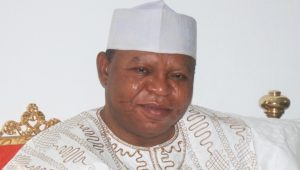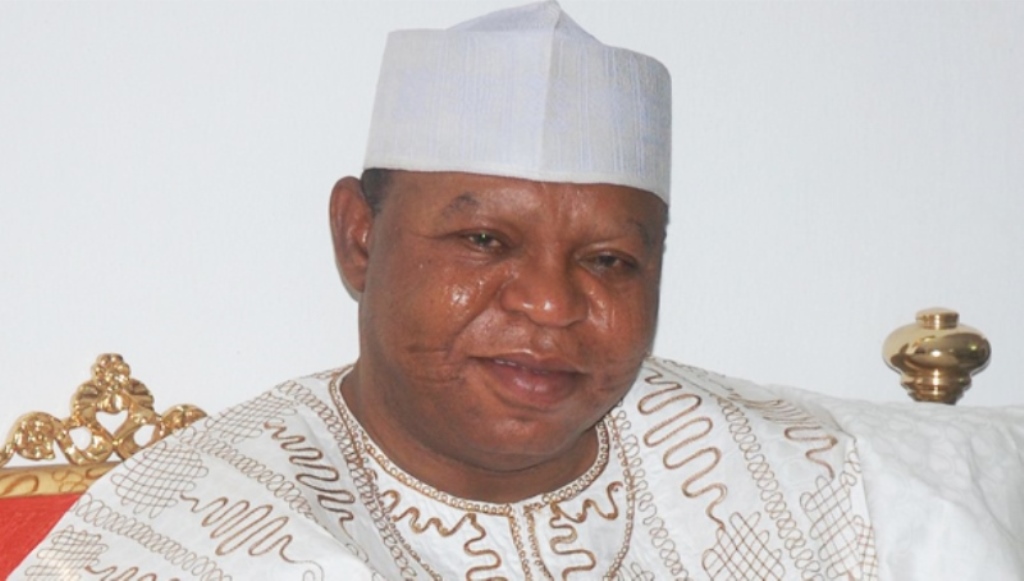
There were conflicting reports about the sudden death, on November 22, of Abubakar Audu, fomer Kogi State Governor and APC governorship candidate for the 2015 election. While it was rumoured that he only complained of stomach cramps the previous day, there was another account that he suffered a stroke twice and died while being rushed to the hospital. What was not in contention however, was that he appeared “hale and Hearty” while casting his votes on Saturday November 22 and no one who saw him on Television that afternoon would believe that was going to be his last moment on earth.
Audu thus joined the growing number of Nigerians that had succumbed to sudden death. There was late General Sani Abacha who did not show any sign of ill health on Sunday June 7, 1998 but suddenly dropped dead on Monday June 8. Also, soccer star Sam Okwaraji actually played for 76 minutes at the National Stadium, Surulere in a World Cup qualification match between Nigeria and Angola on August 12, 1989 before he suddenly dropped dead right on the field. There was also the renowned philanthropist, politician and business magnate, M.K.O Abiola who collapsed and died on July 7, 1998 on the day he was due to be released from incarceration, even when witnesses swore he was in good spirit and quite “healthy” minutes before he fell. The list is becoming endless.
Although the cause of death for most Nigerian victims of sudden death is not often stated, a large number have been traced to cardiac arrest – a heart condition that snuffs life out of its victims abruptly and almost without notice.
Just what could make this organ break down so suddenly, terminating the life of a man in his prime? Why does sudden death syndrome appears to be on the increase in the country? Just what is cardiac arrest and why is it such a deadly condition?
One needs to understand the functions of the organ to appreciate why it’s so crucial to man’s existence. Prof. Wale Oke, a physician/cardiologist and Chief Medical Director, Lagos State University Teaching Hospital (LASUTH) in an interview likens the heart to a water pump which pumps water to the home for its many uses. Like the water pump, the heart pumps blood to various parts and organs of the body. It contains muscles and nerves which it uses to pump blood to the lungs for oxygenation and also to other organs such as the brain, kidneys and even the heart itself. According to him, a cardiac arrest occurs when there’s a sudden stoppage of this function and virtually all the parts of the body are deprived of blood.
There are many factors that could cause such a sudden abruption to the function of the heart. Prof. Oke says the commonest cause of cardiac arrest in Nigeria is muscle problem commonly referred to as heart attack or Myocardial Infarction in medical parlance. It occurs when the arteries supplying the heart with blood is blocked. When this occurs, the area covered by the arteries is automatically deprived of blood and if a large area of the blood is affected, the heart dies.
The cardiologist also lists very irregular heart beat or very fast electrical activities of the heart, very slow heart rate, electrical shock and drowning as factors which may result in cardiac arrest
Then, there is the problem of hypertension which he says affects ten to twelve percent of the Nigerian ‘population and which has been identified as another common cause of cardiac arrest and also stress which he says contributes, to a large extent, to the incidents of cardiac arrest but which unfortunately is not usually reckoned with by most people.
Other causes of cardiac arrest include cigarette smoking, sedentary life style, obesity, diabetes, and excessive amount of cholesterol in the blood known as hypercholesterolaemia in medical parlance. Certain conditions which can predispose secondary hypercholesterolaemia like nephrotic syndrome, a kidney problem characterised by swelling of the body and liver cirrhosis – hardening of the liver are all conditions which may lead to cardiac arrest when they are not properly managed.
“Anybody with these conditions should be mindful of the fact that he is predisposed to cardiac arrest, Prof. Oke says.
Like late Audu, most victims of sudden death, are usually believed to have been “hale and hearty” before their death. But the cardiologist says a victim of cardiac arrest is likely to have experienced some symptoms days or hours before it strikes. Notable among such symptoms is chest pain or angina. The individual, according to him may feel a crushing chest pain on exertion which may spread to the arm or jaw and he may sometimes feel dizzy or faint. These will however disappear after some rest but it may get to a stage where the pain gets so bad that he does not feel better even if he rests. According to the cardiologist, the chances of an attack increases as the pain gets worse. Some patients may experience these signs two days before an attack, he says.
Prof. Oke says cardiac arrest can be both reversible and irreversible. “This will depend on who is there to help,” he says.
According to him, anyone experiencing a cardiac arrest requires Cardiopulmonary Resuscitation (CPR) immediately to prevent an imminent damage-to the heart, lung, kidney and brain. CPR is a basic emergency procedure for life support consisting of artificial respiration and manual external cardiac massage. Although it is necessary in cases of cardiac arrest to establish effective circulation and ventilation in order to prevent irreversible cerebral damage.
Like most killer diseases, cardiac arrest can also be prevented. All it takes, according to the cardiologist is a conscious effort by everyone to keep the heart in a good condition all the time.
Indeed, Prof. Oke says we cannot afford to neglect any organ of the body, not to talk of the heart. Thus to keep the heart trouble-free, the cardiologist recommends that individuals should maintain a healthy routine.
“Exercise and lose weight, if you are overweight, if you are hypertensive, see your doctor and check your blood pressure regularly at least every six months, cut down on cigarette smoking, sugar consumption and watch the amount of fat you eat.”
Experts are also called for a policy that will compel every active adult to have a regular comprehensive medical check at least once a year while people with hypertension or diabetes are encouraged to embark on such checks more regularly. Also, The Federal government has been urged to consider the inclusion of medical checkup as one of the benefits of the national health insurance scheme.

